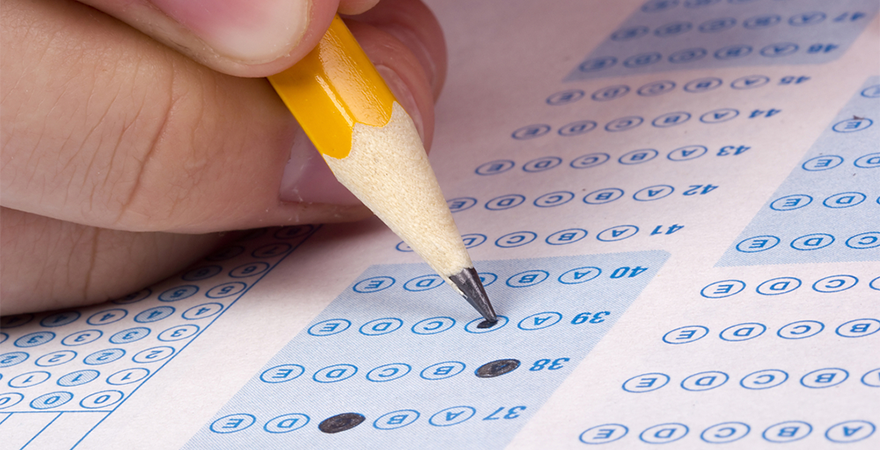Synergex Med
March 13, 2024
Are you ready to embark on an interactive exploration of the fascinating world of cognitive function? Join us as we dive deep into the intricacies of cognitive assessment, unraveling its mysteries and its vital importance in understanding the human mind.
Whether you’re a healthcare professional seeking to sharpen your assessment skills, a caregiver navigating the complexities of cognitive health, or simply a curious mind eager to delve into the science of cognition, this blog has something for everyone.
Get ready to challenge your perceptions, broaden your knowledge, and embark on an exhilarating journey through the fascinating world of cognitive assessment!
Let´s see our topics for the blog!
What does Cognitive Assessment Mean?
Cognitive assessment refers to the systematic evaluation of an individual’s cognitive functions, including memory, attention, executive function, language, and visuospatial skills.
It is used to measure various aspects of cognitive abilities and identify any impairments or changes in cognition.
Cognitive assessment involves administering standardized tests and tasks to assess an individual’s cognitive performance relative to their age, education level, and other relevant factors.
These assessments are commonly used in clinical settings to diagnose cognitive disorders such as dementia, traumatic brain injury, and developmental disorders, as well as to track changes in cognitive function over time.

Is Cognitive Assessment The Same as Cognitive Tests?
Cognitive assessment and cognitive tests are closely related concepts but have distinct differences.
Cognitive assessment refers to the comprehensive evaluation of an individual’s cognitive functions.
Healthcare professionals conduct a comprehensive evaluation to assess overall cognitive functioning, identify strengths and weaknesses, and diagnose cognitive disorders or impairments.
Cognitive assessment often includes a combination of standardized tests, clinical interviews, observation of behavior, and a review of medical history.
On the other hand, cognitive tests are specific instruments or tasks used within cognitive assessment to measure particular aspects of cognitive functioning.
These tests are designed to assess individual cognitive abilities, in a standardized and objective manner.
Cognitive tests provide quantitative data that can be used to compare an individual’s performance to established norms and diagnose cognitive impairments or disorders.
Understanding Cognitive Tests: Synergexmed’s Evaluation Tools
After learning a little more about Cognitive Assessments, we would like to introduce you to the type of tests we offer, which are online tests through CogniFit.
This is a cognitive assessment tool in which users typically participate in a series of cognitive tasks or games designed to measure memory, attention, executive function, processing speed, and other cognitive domains.
The results of these assessments can provide valuable information about cognitive strengths and weaknesses, aiding in diagnosis, treatment planning, and cognitive rehabilitation.

Exploring the MoCA Test (Montreal Cognitive Assessment)
Nowadays, there are many Cognitive Assessments well known around the country, one of them is the MoCA Test, or Montreal Cognitive Assessment, which is a widely used screening tool designed to detect mild cognitive impairment (MCI) and early signs of dementia.
This comprehensive assessment evaluates various cognitive domains, including attention, memory, language, visuospatial abilities, executive function, and orientation. When completing this test, you will see tasks that go from drawing specific shapes to recalling words and performing serial subtractions.
However, it’s important to note that the MoCA Test is not diagnostic on its own and should be part of a comprehensive assessment by healthcare professionals, guiding diagnosis and treatment planning based on its results.
Importance of Cognitive Assessment in Detecting Dementia
- Cognitive assessment plays a crucial role in the early detection and diagnosis of dementia, providing valuable insights into cognitive function and identifying potential cognitive impairments. Here’s why cognitive assessment is important for detecting dementia:
- Early Identification: Cognitive assessment helps detect subtle changes in cognitive function that may indicate the onset of dementia at an early stage. Which allows for timely intervention and management to slow down its progression and improve quality of life.
- Differential Diagnosis: Cognitive assessment helps distinguish between various types of dementia (like Alzheimer’s disease, vascular dementia, and frontotemporal dementia) and cognitive issues not related to dementia. This helps in making accurate diagnoses and planning suitable treatments.
- Individualized Care Planning: Results from cognitive assessments inform individualized care plans tailored to the specific needs and challenges of individuals with dementia.
- Facilitates Caregiver Support: Cognitive assessment not only benefits individuals with dementia but also their caregivers. Understanding the extent of cognitive impairment allows caregivers to anticipate and address the evolving needs of their loved ones.
Overall, cognitive assessment serves as a cornerstone in the comprehensive evaluation and management of dementia, empowering healthcare providers to deliver timely interventions, support, and personalized care to individuals affected by this condition.
How Can We Assess Memory Function in Cognitive Assessment?
Assessing memory function is a crucial component of cognitive assessment, providing valuable insights into an individual’s cognitive health and potential cognitive impairments. Here’s how memory function is assessed in cognitive assessment:
- Recall Tasks:These tasks involve asking the individual to remember and recall information after a certain period. For example, they may be asked to recall a list of words or a series of numbers presented to them earlier in the assessment.
- Delayed Recall: This assesses the individual’s ability to remember information after a delay. After being presented with a list of items, they are asked to recall those items after a short delay, typically ranging from a few minutes to hours.
- Recognition Tasks: In these tasks, individuals are presented with a set of stimuli, such as words or pictures, and are later asked to identify which stimuli they remember seeing before, among a list of new stimuli.
- Story Recall: Individuals may be asked to listen to or read a short story and then recall specific details or events from the story after a delay. This task assesses not only memory but also comprehension and retention of narrative information.

By evaluating memory function through these various tasks and assessments, cognitive assessors can gain a comprehensive understanding of an individual’s memory capabilities, identify any areas of weakness or impairment, and tailor interventions or support strategies accordingly.
What Are The Recommendations for Effective Cognitive Assessment?
In conclusion, effective cognitive assessment is essential for understanding an individual’s cognitive functioning, identifying any impairments or disorders, and planning appropriate interventions. To ensure optimal outcomes, it’s important to follow these recommendations:
- Utilize standardized tests and assessment tools
- Consider the individual’s background and context
- Collaborate with interdisciplinary teams
- Monitor cognitive function over time
- Educate patients and caregivers
As you can see, cognitive assessment is a compass guiding individuals and healthcare professionals through the labyrinth of cognition, offering hope, understanding, and tailored solutions along the way.
Explore advanced cognitive assessment solutions at Synergex Med, your trusted source for comprehensive neurological assessments. From memory tests to attention evaluations, we offer precise insights into your cognitive function.


